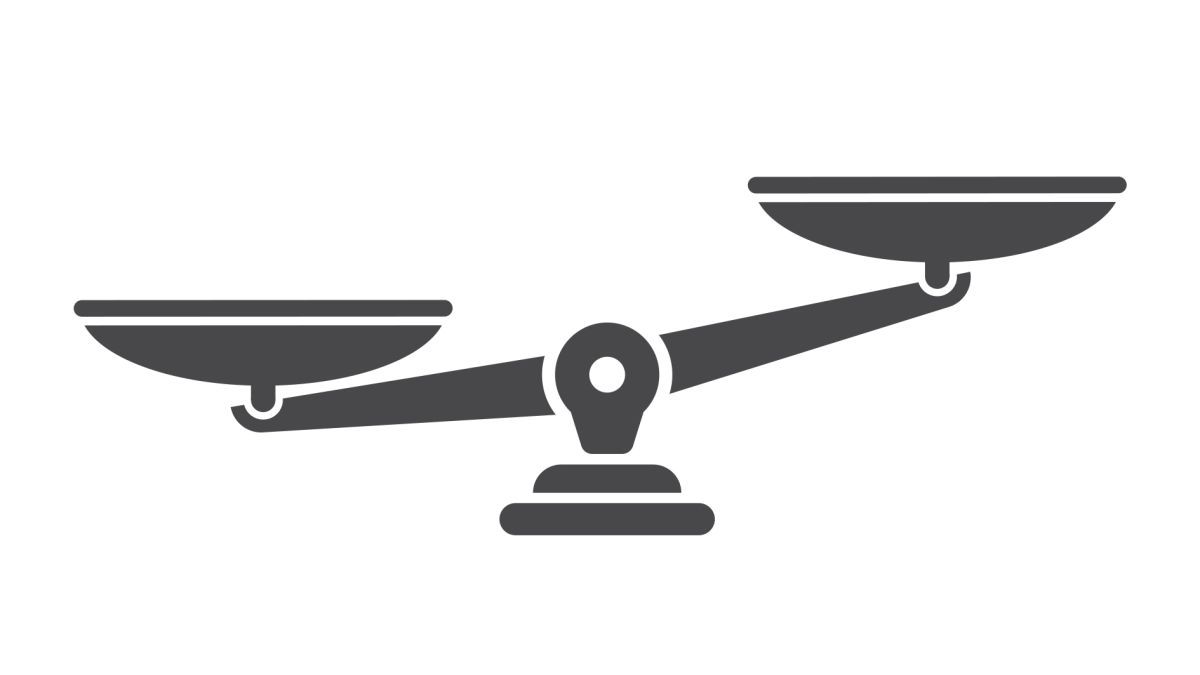Weighing the Affairs


Indeed all praise is for Allāh. We praise Him, we seek His aid and we ask for His forgiveness. And we seek refuge in Allāh from the evils of our own souls, and our evil actions. Whosoever Allāh guides, then none can misguide him; and whosoever Allāh misguides, then none can guide him aright. I bear witness that none has the right to be worshipped except Allāh alone, having no partners, and I bear witness that Muḥammad ﷺ is His servant and Messenger. After that:
Indeed, in patiently bearing their tyranny lies the wiping away of sins and a great reward. Since Allāh has not given them authority over us except due to the corruption of our own actions – and the reward is of the same type as the actions.
The Beleiver’s Fortress
Allāh – the Most Perfect – said:
‘‘And thus the good Word of your Lord was fulfilled for the Children of Israa‘eel, because of their patience. And We completely destroyed all the great works and buildings that Firʿawn and his people had erected.’’
[Sūrah al-Aʿrāf, 7:137]
‘‘Command the good and prohibit the evil, and be patient with whatever calamity befalls you. Indeed, this is the firmness required for matters.’’
[Sūrah Luqmān, 31:17]
‘‘O you who believe! Seek help with patience and with Prayer. Indeed, Allāh is with those who are patient.’’
[Sūrah al-Baqarah, 2:153]
Imām al-Bukhārī (d.256H) – raḥimahullāh – relates in his Ṣaḥīḥ (no. 3612):
From Khabbāb Ibn al-Aratt – raḍī Allāhu ʿanhu – who said: We complained to the Messenger of Allāh ﷺ (about the persecution by the Pagans) whilst he was sitting in the shade of the Kaʿbah, leaning upon his cloak. We said to him: Will you not seek help for us? He said: ‘‘There was amongst those before you a (believing) man, who would have a hole dug for him, and he would be placed in it. Then a saw would be brought and it would be placed upon his head, and it would be sawn in half, yet that would not make him abandon his Religion. His body would be torn with iron combs, and the flesh from his nerves and bones being removed, that would not make him give up his Religion. By Allāh! This Religion will prevail until a rider will travel from San’aa to Hadramawt, not fearing anything except Allāh and the wolves with regards to his sheep. But you people are impatient!’’
Ibn Sa’d relates in at-Tabaqaat (7/163-165):
A group of Muslims cam to al-Ḥasan al-Baṣrī (d.110H) – raḥimahullāh – seeking a verdict for rebelling against al-Ḥajjaaj. So they said: O Abā Saʿīd! What do you say about fighting this oppressor who has unlawfully spilt the blood, and unlawfully taken wealth, and did this, and did that? So al-Ḥasan said: ‘‘I see not to fight him. If this is a punishment from Allāh, then you will not be able to remove it with your swords. If this is a trial from Allāh, then be patient until Allāh’s Judgement comes, and He is the best of judges.’’ So they left al-Ḥasan and disagreed with him and rebelled against al-Ḥajjaaj, so he killed them all. And about this, al-Ḥasan used to say: ‘If only the people had patience, when they were being tested by their unjust ruler it would not be long before Allāh gives them a way out. However, they always rush for their swords, so they are left to their swords. By Allāh! Not even for a single say did they bring about any good.’’
Ibn Abī al-ʿIzz (d.792H) – raḥimahullāh – said: ‘‘Indeed, in patiently bearing their tyranny lies the wiping away of sins and a great reward. Since Allāh has not given them authority over us except due to the corruption of our own actions – and the reward is of the same type as the actions. So we should strive hard in seeking the forgiveness of Allāh, repent to Him, and correct our actions…So if the subjects desire an end to the oppression of the oppressive rulers, then let them also cease oppressing themselves [through sins and disobedience].’’1
The Devil’s Diversion
However, from the deceptions of Shayṭān upon many of the duʿāʾt (callers to Islām) today, is his causing them to become impatient and causing them to divert ‘‘all their attention to accusing the rulers, ‘This one is an American stooge, and this one is a British stooge.’ – as if there were no one else in the world except America and Britain; and it is as fi it were America and Britain who were running the affairs of the creation! This causes the people to turn away from Allāh’s way of changing the affairs. They think that if they change the ruler, they will attain what they desire. This is in contraḍīction to the natural way laid down by Allāh with regards to changes that come about amongst the creation:
‘‘Never will Allāh change the condition of a people, until they change themselves.’’
[Sooratur-Ra’d 13:11]
And if we imagine that the ruler changed – whilst the people do not truly desire this Religion – then what will happen is that these people will cause a revolution, as happened – for example – in Russia. This state was established by force, tyranny, suppressing the voice of the people, and though killing. So we find that people did not support it, but rather they opposed it. And for Allāh’s Laws to be established throughout this earth, they have to be carried by the Believers…Therefore, we do not wait for the west or the east to help the Religion, but its own people have to be its carriers. They are the ones to help and carry the Religion.’’2
But ‘‘how can we seek help from a people who do not pray, nor give zakāt (charity), nor fast, nor make Ḥajj, that they establish the Islamic order? Rather, those people who do not pray, nor give charity, nor fast, – they will be the first of the people to stand in the way of the Islamic rule!’’3
From Where Should the Change Begin?
Abū Dāwūd relates in his Sunan (no. 3426): From ʿAbdullāh Ibn ʿUmar (raḍī Allāhu ʿanhumā) that he ﷺ said: ‘‘When you deal in ’eenah (usury-based) transactions, hold onto the tails of cows, become satisfied with agriculture and leave off Jihād, then Allāh will cover you with humiliation, and He will not remove this humiliation from you, until you return to your Religion.’’4
Thus the beginnings of this desired change will only come about by ‘‘the Muslims returning to their Lord, correcting their ʿaqīdah(beliefs) and cultivating themselves and their families upon the correct Islām – putting into effect the statement of Allāh – the Most High:
‘‘Never will Allāh change the condition of a people. Until they change themselves.’’
[Sooratur-Ra’d 13:11]
The likes of this has been alluded to by one of the contemporary duʿāʾt (callers to Islām), by saying: ‘Establish the Islamic state in your hearts, it will then be established upon your earth.’ So the way to salvation is not – as some people imagine – revolution and armed insurrection against the rulers and to carry out military coups! Such actions – in addition to being from amongst the present-day bidʿahs (innovations) – also contraḍīct the Sharīʿah texts; among which is the command to change ourselves. Thus, it is essential to establish the foundations upon which the building can stand.’’5
Furthermore, ‘‘it should be known that those who stir up revolution serve only the enemies of Islām. What is to be considered is not revolution and agitation, but what is according to wisdom. By wisdom, I do not mean remaining silent and ignoring their errors – rather correcting their errors in order to rectify the state of affairs. So the sincere one is the one who speaks to rectify the affairs, not merely to cause change [whether good or bad].’’6
Imām al-Bukhārī relates in his Ṣaḥīḥ (no. 6830):
From Ibn ʿAbbās (raḍī Allāhu ʿanhumā) who said: I used to teach (the Qurʾān) to some of the Muhājirūn, amongst them whom was ’Abdur-Raḥmān Ibn ’Awf. Whilst I was in his house at Minaa and he was with ʿUmar Ibn al-Khaṭṭāb during the last Ḥajj, ’Abdur-Raḥmān Ibn ’Awf came to me and said: ‘‘Would that you had seen the man who came today to the Leader of the Believers (i.e. ʿUmar), saying: O Leader of the Believers! What do you say about such and such a person who says: If ʿUmar should die, I will give the bay’ah (oath of allegiance) to such and such a person, for by Allāh, the bay’ah to Abū Bakr was nothing but a reaction which became established afterwards. So ʿUmar became angry and said: ‘‘If Allāh wills, I will stand before the people tonight, and I will warn the people against those who wish to deprive the people of their rights.’’ ’Abdur-Raḥmān said: ‘‘So I said: O Leader of the Believers, do not do this! For the season of Ḥajj gathers the common-folk ghawghaa‘ (the common folk and those who incline towards evil), and it will be they who gather closest to you when you stand to address the people. I fear that you will rise and address them, but some of them will spread your words, but will not understand them, or that they will twist your words and take them out of context. So wait until you reach al-Madīnah – the Land of Hijrah (migration) and the Sunnah – where you will be amongst the people of Knowledge and understanding, and the noblest of people. So there you may say what you have to say with confidence since the people of Knowledge will understand your words and put them in their correct context.’’ So ʿUmar said: ‘‘By Allāh! This is what I shall do in my first address to the people of al-Madīnah – if Allāh wills…’’
Weighing the Affairs
So from the well-known Sharīʿah principle is:
‘‘Preventing mafṣadah (harm) is given precedence over procuring maslahah (benefit).’’7
And ‘‘ordering the good should not result in the loss of a greater good, nor cause a greater evil (than before). Likewise, forbidding the evil should not result in a greater evil, nor in the loss of a greater good.’’8
Explaining the mistakes of certain people concerning the above point, Ibn Taymīyyah (d.728H) – raḥimahullāh – said: ‘‘They wish to command and prohibit by the tongue or the hand only, without due understanding, without due mildness and without patience. They do not consider whether their actions are beneficial or detrimental, nor do they consider whether they have the ability to do so or not…This whole matter falls under the general principle: that whenever there is a conflict between benefits and harms, of good and evil, then it is obligatory to weight the two and to prefer that which is greater. Since commanding or prohibiting is meant either to attain benefit or to repel harm – yet one must still consider the opposite outcome. Thus, if it results in a great benefit being lost, or causes greater harm, then such a matter should not be commanded. Rather, it would be ḥarām (unlawful) to do so, if the harm outweighed the benefits! However, weighing the relative harms and benefits must be done using the scales of the Sharīʿah.’’9
Ibn al-Qayyim (d.751H) – raḥimahullāh – said: ‘‘If one considers the various trials and tribulations – the large or the small – that have occurred in Islām, one would find that they resulted from neglecting this principle (of weighing the affairs); and not having patience with the evil, but attempting to stop it in a way which causes a greater evil.’’10
From the many texts which highlight this principle are:
That which al-Bukhārī (no. 126) and Muslim (no. 1333) both relate from ’Aa‘ishah (raḍī Allāhu ʿanhu) that he ﷺ said to her: ‘‘O ’Aa‘ishah! If it were not that your people had recently left ignorance, I would have ordered that the House (i.e. the Kaʿbah) be dismantled, and I would have joined with it what had been removed from it, and I would have leveled it with the ground and made for it two doors – one towards the east, and one towards the west – so that I could build upon the foundations laid by Ibrāhīm.’’
Imām Ibn al-Qayyim al-Jawziyyah commented: ‘‘Thus, he ﷺ wanted to build upon the foundations of Ibrāhīm (ʿalayhi al-Salām) and had the ability to do so. However, he feared that a greater harm would ensue, since the Quraysh [would not have understood the intent], since they had only recently come into Islām, from the previous Jāhiliyyah (pre-Islamic ignorance).’’11
Imām al-Bukhārī (d.256H) – raḥimahullāh – precedes the ḥadīth of ’Aa‘ishah with a chapter heading: ‘‘Chapter: To leave some good actions fearing that people will misunderstand the action, and thus fall into that which is worse than it.’’12
Al-Ḥāfiẓ Ibn Ḥajar (d.852H) – raḥimahullāh – said, whilst enumerating some of the points of benefit from the above ḥadīth: ‘‘To leave the maslahah (benefit), believing that it will result in a mafṣadah (harm); and to leave forbidding the mankar(evil), for fear of falling into a greater evil.’’13
The Need to Know the Correct Manhaj
Shaykh Rabīʿ Ibn Hādī al-Madkhalī (hafiẓahullāh) says: ‘‘So we ask Allāh that He prepares for this Islamic Ummah, intelligent duʿaʾt who weigh the matters, thoughts, personalities, and groups with the scales of the truth – whose intellects are firm, and who are neither misled by blind emotions nor deceived by the empty slogans that have overwhelmed so many.’’14
It is important to mention here that such preparations must only be built upon the correct Islamic principles; which have as their firmly-rooted foundation:
[i] Loving the Salaf (pious predecessors) and the manhaj (methodology) they were upon.
[ii] Understanding their manhaj – and that is the manhaj of Ahl al-Sunnah wal-Jamāʿah.
[iii] Adhering to the manhaj of the Salaf – whether in matters of manners, daʿwah(calling to Allāh), purification, beliefs, or actions.’’15
So what is needed are wise, mild, and patient duʿāʾt (callers) working in sincere co-operation with the scholars of Islām and their students – being cultivated upon the manhaj (methodology) of the Salaf. This necessitates that ‘‘the Book and the Sunnah are made the general framework for every small or large matter; and that their manhaj (methodology) is made the undergarment and outer-garment of the daʿwah – its beginning and its end – and that the thinking of such youths, and others who are giving daʿwah, should be lead in accordance with this great manhaj – upon which rests the only means for the well-being of the Ummah.’’16
Imām Mālik (d.179H) – raḥimahullāh – said: ‘‘The latter part of the Ummah will not be set aright, except by that which set aright its first part.’’17
So this then is the foundation of the justly-balanced, knowledge-based manhaj which this precious Ummah – may Allāh increase it in nobility – must adopt, traverse, and call to. Without the manhaj, this fragile Ummah will continue in its weakness and its ugly predicament – however, much energy is expended, and however many lives are lost for its cause!
May Allāh have mercy upon the one who said: “You hope for salvation, but do not tread its path; Ships never sail upon dry land.’’18
Endnotes:
[1] Sharḥul-ʿAqīdahtit-Tahaawiyyah (p. 382)
[2] Su‘aal wa Jawaab ma’a Shaykh Saleem al-Hilālee (p. 3)
[3] Ibid (p. 21)
[4] Ṣaḥīḥ: Related by Abū Dāwūd (no. 3462), it was authenticated by Shaykh Muḥammad Nāṣir al-Dīn al-Albānī in al-Ṣaḥihah(no. 11)
[6] Huqooqur-Ra’ee war-Ra’iyyah (p. 29-30) of Shaykh Ibn al-ʿUthaymīn
[7] al-Ishbaah wan-Nadhaa‘ir (p 87) of as-Suyootee
[8] al-Hisbah fil-Islām (p. 124) of Ibn Taymīyyah
[9] al-Amr bil-Ma’roof wan-Nahu ’anil-Munkar (p. 19-21)
[10] I’lāmul-Muwaqqi’een (3/4)
[11] I’lāmul-Muwaqqi’een (3/4), slightly adapted
[12] Ṣaḥīḥ al-Bukhārī (1/271)
[13] Fat′h al-Bārī (1/271)
[14] From Shaykh Rabīʿ Ibn Hādī’s introduction to Kashful-Ḥijāb (p. 4), slightly adapted
[15] al-Hikmah (p. 59)
[16] Fiqh al-Wāqiʿ (p. 19)
[18] Related by Ibn Hibbān in Rawdatul-’Uqʿalá (p. 284), from the poetry of Abū al-’Atiyyah.
Most Popular: Last 30 Days

















